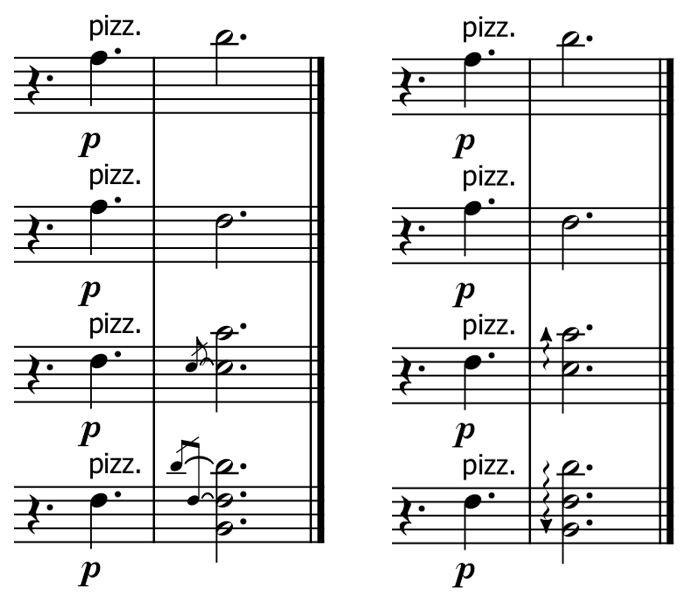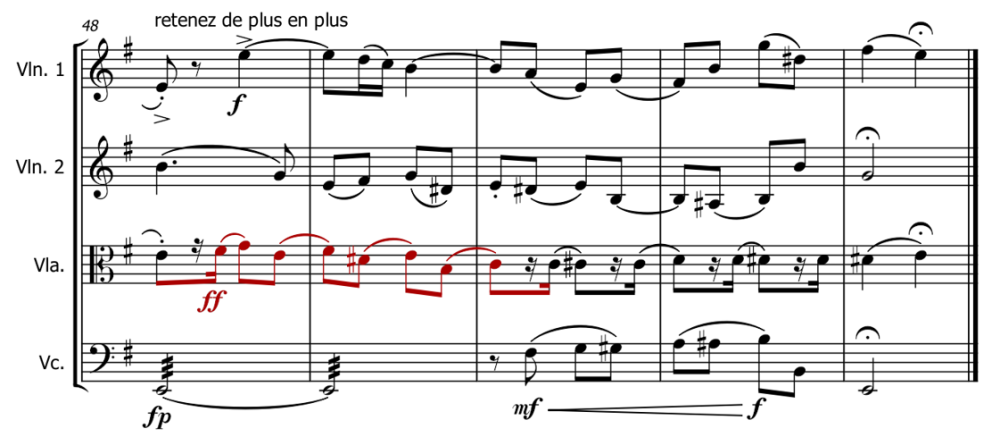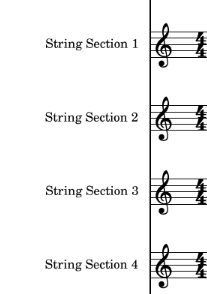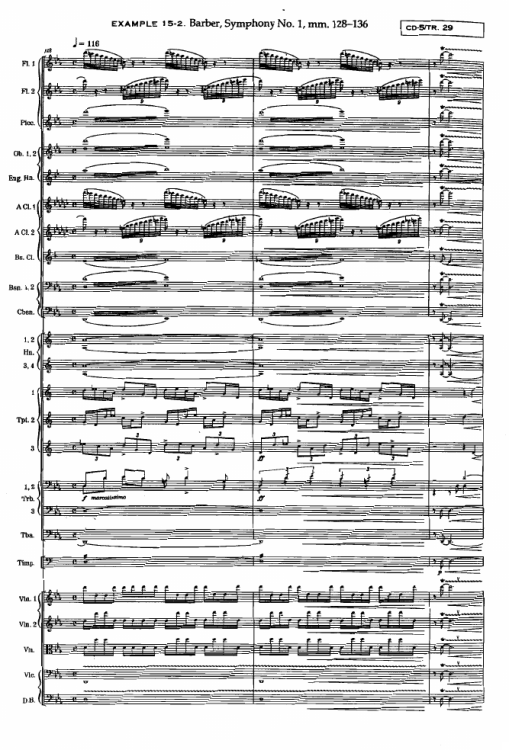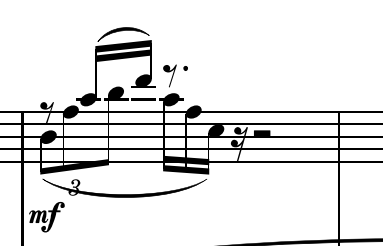All Activity
- Today
-
Henry Ng Tsz Kiu started following 2025 Halloween: Results and Winners!
-
Purcell orchestration (Funeral Sentences)
Alex Weidmann replied to Alex Weidmann's topic in Orchestral and Large Ensemble
Just made a new version of this with more varied instrumentation, including harp and vibraphone. Hopefully it's an improvement? Added some extra counterpoint on the doublebass, which I wrote myself. Not sure it works! -
Op.181 for piano (original composition for organ)
Demertzis replied to Demertzis's topic in Piano Music, Solo Keyboard
Thank you for your honest opinion! -
Update! Ondine and Scarbo by M. Ravel Sonatas No. 1-3, Op. 2 Variations, and Op. 25 No.6, Op. 10 No. 1 and No.2 by F. Chopin Hammerklavier, Appasionata, and Waldstein Sonatas and Piano Concerto in C Minor by L. V. Beethoven Transcendental Etudes 1-5, 8, 9, and 12 by F. Liszt Etudes Op. 39 by C. V. Alkan Goldberg Variations by J. S. Bach And, Lastly, Trockne Blumen (Introduction and Variations) and Wanderers Fantasy by F. Schubert
-

Rate my 3rd Sonata!
Luis Hernández replied to TristanTheTristan's topic in Piano Music, Solo Keyboard
I think the initial motif, consisting of one measure, is repeated too often (16 times). It then gives way to another motif in eighth notes that is also repeated many times. I don't think it's just a matter of repetition, but rather that limiting the motif to one measure results in a lack of musicality overall (there is no unity in the overall phrase). The cadenza suffers from something similar. On the other hand, there are some parts or moments where the writing is less suited to a real pianist than to MIDI-type sound. I think that if it were treated differently, in terms of accents and dynamics, it could be closer to a contemporary sound. Although the cadenza moves between a very classical style and a more naive one. In measure 85 there is a change, but the idea of the rhythmic ostinato remains throughout. The scherzo, in my opinion, is too fast. The trio promised a change, but the accompaniment is just as fast. At those speeds, which I don't know if they would cause fatigue in the performer, the musicality is lost (for me). I quite like the Lento, it has a predominantly quartal harmony that makes it very clear sonically. Some mega-chords in the left hand need to be rewritten using both hands. The change (transition) at bar 33 needs to be worked on, as it is simply an abrupt turn. The Allegro ma non troppo is also very good; it sounds very Mozartian. I think there are many different ideas, and a sonata is not just about taking different structures and placing them one after the other. Perhaps the complicated thing is to make it sound like a single thing. -

Op.181 for piano (original composition for organ)
Luis Hernández replied to Demertzis's topic in Piano Music, Solo Keyboard
I think the arpeggio in the accompaniment sounds better in the piano version; it seems more idiomatic than for an organ. -
I think it has interesting parts, both because of certain harmonic contrasts and some syncopated moments. But it's a bit of a mix of styles, which makes it seem a little pastiche, like the ending with the arpeggios in the left hand, which is something new compared to what came before. It's difficult to transition between very chromatic parts and others that sound much more standardized. In conclusion, I think there are many ideas that, although interesting, blur the overall structure.
-
.thumb.png.8b5b433a341551e913a34392660bc95b.png)
Fall 2025 Halloween Competition
PeterthePapercomPoser replied to PeterthePapercomPoser's topic in Monthly Competitions
The competition is now over! Check out the results and winners! -
.thumb.png.8b5b433a341551e913a34392660bc95b.png)
Poll - 2025 Halloween Competition
PeterthePapercomPoser replied to PeterthePapercomPoser's topic in Monthly Competitions
Check out the results and winners! -
PeterthePapercomPoser started following Idea no.0
-
MY_MUSIC_058_20251104_163157_164052521.mp3
-
.thumb.png.1e2763f479362bbb522da50d31ef2e50.png)
A hollow theme for Halloween (Fall 2025 competition)
therealAJGS replied to therealAJGS's topic in Electronic
the instruments are music box, drums, organ, harpsichord, and vibraphone, -
.thumb.png.1e2763f479362bbb522da50d31ef2e50.png)
A hollow theme for Halloween (Fall 2025 competition)
therealAJGS replied to therealAJGS's topic in Electronic
it's music box, not celesta. also, i used ai for the score since i didn't have time to make a musescore account and create a score since I didn't know we needed one till the last minute. -
Henry Ng Tsz Kiu started following Favourite ever piece(s)?
-
.thumb.png.8b5b433a341551e913a34392660bc95b.png)
Poll - 2025 Halloween Competition
PeterthePapercomPoser replied to PeterthePapercomPoser's topic in Monthly Competitions
Ok .. your votes are showing up now. Thanks for voting! -
.thumb.png.1e2763f479362bbb522da50d31ef2e50.png)
Poll - 2025 Halloween Competition
therealAJGS replied to PeterthePapercomPoser's topic in Monthly Competitions
yeah. probably a technical issue. -
.thumb.png.8b5b433a341551e913a34392660bc95b.png)
Poll - 2025 Halloween Competition
PeterthePapercomPoser replied to PeterthePapercomPoser's topic in Monthly Competitions
none of your votes are showing up on my end. Are you sure you hit the "Vote" button at the bottom of the form to submit your votes? -
.thumb.png.1e2763f479362bbb522da50d31ef2e50.png)
Poll - 2025 Halloween Competition
therealAJGS replied to PeterthePapercomPoser's topic in Monthly Competitions
i did. -

Concerto in C for Flute and Orchestra
Omicronrg9 replied to J. Lee Graham's topic in Orchestral and Large Ensemble
Nah, this is GREAT. Thank you, it's so great to come back to this forum and stumble upon such a magnificent work. I agree with Peter in that you should leave the flutes as they are. This live would probably be great! I am not really a fan of concertos. For some reason they don't really stick to me, it just must be that I have not listened to them enough and with enough attention. But here, listening to this, I feel right at home. What a delightful first movement! It was light, gentle, sweet and very enjoyable in summary, although it was not bland or boring, I loved the tenser moments with lots of timpani and the passage right after the introduction. You clearly know your craft and I think that shows in the equilibrium between the orchestra and the soloist! The andante was also lovable. It did even gain a bit of sweetness but it didn't become overwhelming, pompous... No, again I find equilibrium, and I cannot really stop the piece so here I come again. Some resolutions of certain passages remind me a lot of the second movement of Haydn's Trio No. 39, and probably of lots of other pieces written by him but this one came to mind. Third movement was a tiny tiny bit darker or more serious, those minor passages preceded by the striking brass+timpani tuttis (or tuttis overall, didn't see the score at that point) were something I 200% enjoyed. And the last fanfares and finally, the coda... Damn. Impressive, hats off. I feel almost like if I had attended to a premiere of some great musical work (and at my place that's not very common, it's either ultrahyperdissonant or conceptual stuff or already established music by our grand masters of the past). What a great job, many many thanks and congratulations. I have already shared it with my friends. Hi man. Since the OP did not reply yet let me just throw two very well known references that you may know as well, but just in case: ♫ The study of Orchestration by Samuel Adler ♫ Principles of Orchestration by Nikolai Rimsky-Kosarkov In the rare case you haven't heard of them, here you go. Best regards, Daniel–Ø. -
Omicronrg9 started following J. Lee Graham
-
therealAJGS started following Favourite ever piece(s)?
-
.thumb.png.1e2763f479362bbb522da50d31ef2e50.png)
Favourite ever piece(s)?
therealAJGS replied to TristanTheTristan's topic in Music Appreciation: Suggest Works or Articles
moonlight sonata 3rd movement, Beethoven. -
AI was not used in this song. I played the saxophone, my group's name is "AI Competition." Yeah, the recording quality isn't the best.
-
Ah thanks so much @Monarcheon for your comments/feedback/thoughts! It's rare that I get this much to digest in one go, but I'm not complaining if my steak is too juicy and my lobster too buttery. That's a good point you bring up. I did originally want to go for a much longer/expansive theme and variations piece (I think I had this one in mind as the model), but, as a chronic procrastinator, I think I rushed to try to squeeze it in—at the cost of something more substantial—for that competition. Now that that's over and I've realised the futility of arbitrary deadlines, I feel like I can put quite a bit more effort into this. I really like your suggestion about trying to back-engineer extra sections of the theme so I'll be going through my current variations with a fine-toothed comb shortly... Oh yes, I think that'd work very well, I'm gonna put that in! I was thinking something raindroppy for that accompaniment and this definitely suits it. Hmm, I think I see what you mean about the jump, if I presume you're talking about the octave B-to-B? I did think it was a bit iffy when I wrote it so I'm gonna see if I can write a few other versions. Did you mean you felt as if V1 and V2 should convene in bar 5? I'm not sure if this is related, but during my earlier drafting process I did actually think of having all the instruments settle on E in the last bar, so this particular version felt a bit odd to me with V2 falling to G at the end. I'll try expanding the theme and seeing what works best... Yes, definitely, that is what I meant, I seem to have forgotten what that was called! I'll go in and edit that, as well as the rolled pizzicato thing, which I also probably want with the viola. I'm also super happy to hear that b. 21 onwards worked because at the time I wrote it I felt it might have been too disjunct from the rest of that variation. Is it convention to mark a rolled pizz. with an arpeggio line, or something else? I probably want the viola and cello in contrary motion, with the viola up (with the regular arpeggio marking or the one with the arrow), the cello down, and the violins coinciding with the last note only. I like the first option à la Scriabin's Eighth Sonata, but I'm not sure if that might be misinterpreted: Also one of the things I noticed! I remember coming up that rising chromatic line and really digging it, but I must've forgotten that I was tiptoeing around the dominant in the other instruments. Although I'm pretty sure I liked the dissonance that came out of that, the resolution didn't seem very satisfying...I did a small shuffling around that probably works better? I'm certainly the least satisfied with this variation—maybe because I churned it out the fastest, lol—and I agree with your sentiment on the tremolo, contrast, etc. I thought the transitions into the B section and from the B section back into the tremolo were particularly poor, so that'll also need redoing. I'll probably rework it to give it more of a Prestissimo finale/final movement feel (I have a feeling I want to keep this as the last variation and fill the other variations in between) and give more time for the flittering to settle in before moving onto the slow B section, which I thought probably came in too early. Time to get cracking once all my exams are over...
-
Nice improv! Are you the saxophonist? Or did you use AI or something like that? Too much cymbal, and it seems a bit odd at times for me, not sure why, but all in all, great! Kind regards, Daniel–Ø.
-

Apatite - Short Orchestral/Vocal Sketch (score + audio)
Omicronrg9 replied to Burlap Guy's topic in Choral, Vocal
Hi Burlaw Guy and welcome to the forums! Nice atmosphere you created. Quite simple but it mostly works, soundwise. You don't get into complication, and thus little trouble comes. However, I am not sure of how you recorded this but it's clearly wrong (compared with what the score reads) at many places. It's specially noticeable in the off-rhythm passages that should not be off, and the last section in which you have a piano solo that is everything but equal 8ths! Score-wise and in regards of other aesthetic and musical aspects I believe @TristanTheTristan and @Thatguy v2.0 have given you some advice that is worth checking in my humble opinion. My best advice, if you want to make scores and compose your works yourself for Orchestra, is to first learn how to make them readable, useful for real orchestras or any size, and overall learn about the disposition of these instruments, their characteristics, etc. You won't get to idiomatic writing in the blink of an eye, but you will spot strange stuff in your own scores and maybe in others'! For that purpose I must recommend you a book by Samuel Adler called: "The Study of Orchestration". Examples of strange scoring (for a real orchestra) are: What strings? Violins, violas...? All of them? 4 scores for all strings? This is ambiguous and apart from that you got violas on a separate staff! The order in which you present the instruments in a general score also matters. More to some than to some others but a standard order is always advised. And just to put some more examples of GOOD writing practices for orchestra and details found on a bit more in-depth analysis of the score: • You present female voice and choir parts, but then they turn to Vo. and W. What happened? • The horn can be transposed to F and Bb, normally it's on F as it's the case in your score but knowing things like these and specifying them never hurts! • Specify the type (and if you want, the number) of instrument playin' in every part. "String section" says very little. "String section" with block chords, says a bit more, but not about the piece, but about the approach used to reach it. Normally, you have 2 violin sections, 1 viola section, 1 cello section and 1 double bass section. Get acquainted with the terms divisi and unison, again not 100% needed but an accumulation of good use of conventions and fine details makes a score shine. I know the image I sent you is pixelated but all things I'm saying are in part there. Really, reading a treatise of orchestration such as the one I suggested will greatly help you in this regard! Finally: it is a bit strange that you have almost no brass but the horn. The score overall needs some polishing but it can be read. Beware of overlaps. A bit all over the place for a review, I know, but I just intend to not repeat what my colleagues here said and to give you some more stuff to work on. Hope any of this was of help. Best regards, Daniel–Ømicrón. -
Well at least for Hollywood films music I guess. Many film composers in the Art Films are actually quite great.
- 18 replies
-
- 2
-

-
Aaah, understood. To be honest, I had never thought much of differences between modern film composers ways of developing motives and themes and the ways of the grand masters of the past. See you around in the forums 😁
- 18 replies
-
- 1
-

- Yesterday
-
Popular and cinematic music often doesn't develop themes in a classical way, instead opting to repeat the themes in different keys and sometimes even in the same key.
- 18 replies




